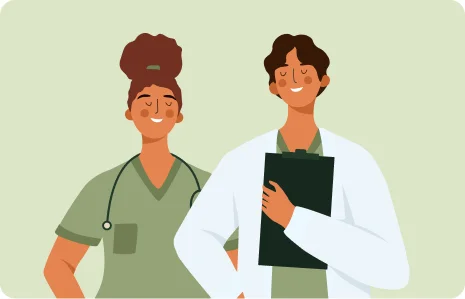The intricate relationship between traumatic brain injuries (TBIs) and depression is a complex interplay that significantly impacts the mental health and well-being of affected individuals. This article delves into the link between TBIs and depression, exploring the mechanisms, common manifestations, and avenues for support in navigating the challenges posed by these interconnected conditions.
The Link between Traumatic Brain Injuries and Depression:
Traumatic brain injuries result from sudden, forceful impacts to the head, causing disruptions in normal brain function. This physical trauma can lead to a cascade of neurobiological changes, influencing mood-regulating neurotransmitters and potentially contributing to the development of depression.
- Neurobiological Impact: TBIs can disrupt the delicate balance of neurotransmitters, including serotonin, dopamine, and norepinephrine, which play crucial roles in regulating mood. The alterations in these neurotransmitter levels may contribute to the onset of depressive symptoms.
- Structural Changes: Structural changes in the brain following a TBI can also influence mood. Damage to specific brain regions associated with emotional regulation, such as the amygdala and prefrontal cortex, may contribute to an increased susceptibility to depression.
- Inflammatory Response: TBIs trigger an inflammatory response in the brain, leading to the release of pro-inflammatory chemicals. Chronic inflammation is associated with depressive disorders, suggesting that the inflammatory aftermath of a TBI may contribute to the development or exacerbation of depression.
Manifestations of Depression Following TBIs:
- Emotional Symptoms: Individuals who have experienced a TBI may exhibit emotional symptoms of depression, including persistent sadness, feelings of hopelessness, and a loss of interest or pleasure in activities.
- Cognitive Challenges: Depressive symptoms can manifest as cognitive difficulties, such as difficulty concentrating, making decisions, and memory impairments, which may be exacerbated by the cognitive effects of the TBI.
- Social Withdrawal: Depression following a TBI may lead to social withdrawal and isolation. Individuals may struggle with interpersonal relationships and experience challenges in maintaining connections with friends and family.
Support Strategies for Individuals with TBI-Related Depression:
- Medical Evaluation and Treatment: A thorough medical evaluation is essential to identify and treat both the TBI and associated depressive symptoms. Medications, including antidepressants, may be prescribed to alleviate symptoms.
- Integrated Psychotherapy: Counseling and Integrated Psychotherapy, such as cognitive-behavioral therapy (CBT), can help individuals cope with the emotional and cognitive challenges associated with TBI-related depression. Therapists work with patients to identify negative thought patterns and develop coping strategies.
- Rehabilitation Programs: Comprehensive rehabilitation programs, including physical, occupational, and speech therapy, can contribute to overall recovery and help individuals regain functional independence, positively influencing their mental health.
- Social Support: Building a strong support network is crucial. Friends, family, and support groups can provide emotional reassurance, understanding, and encouragement, fostering a sense of connection during the recovery process.
The intricate connection between traumatic brain injuries and depression underscores the importance of a multidimensional approach to care. By addressing both the physical and psychological aspects of recovery, individuals can navigate the challenges associated with TBI-related depression and work towards reclaiming their mental health and overall well-being. Early intervention, tailored treatment plans, and ongoing support play pivotal roles in optimizing outcomes for those facing this intricate intersection of physical and mental health challenges.








